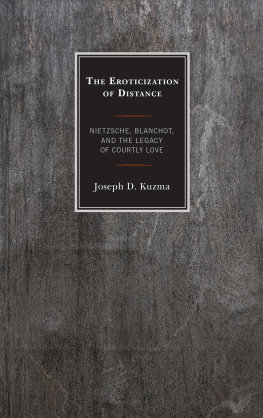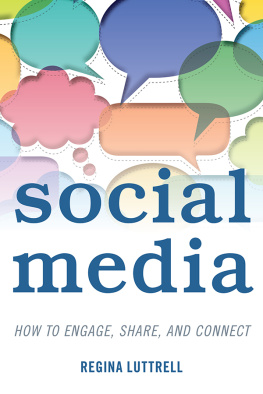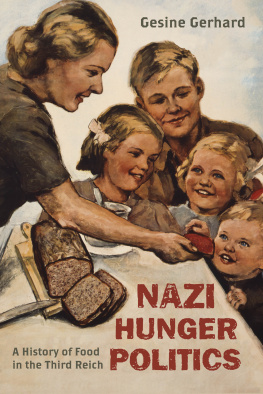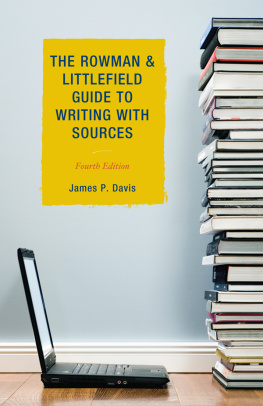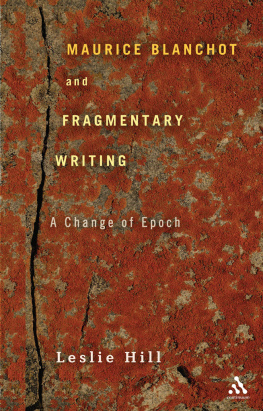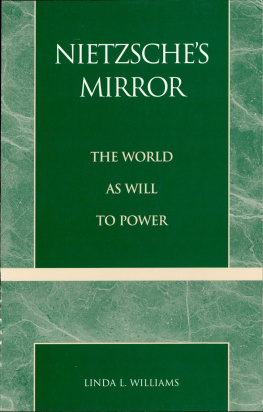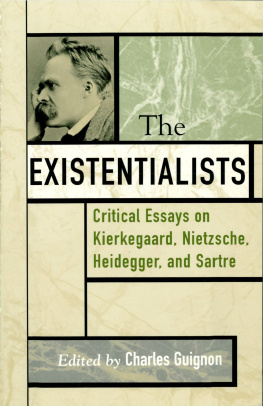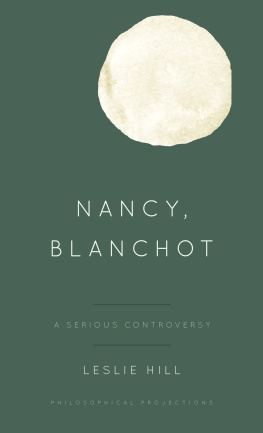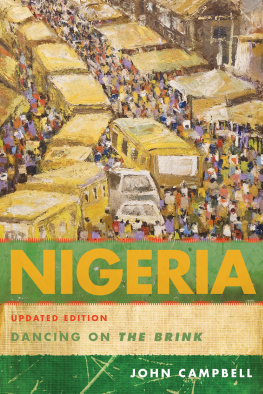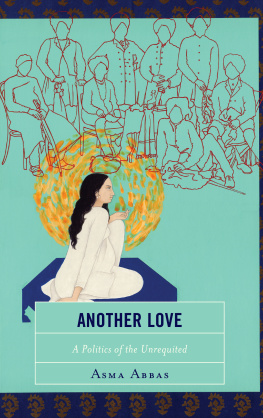Rowman and Littlefield. - The eroticization of distance: Nietzsche, Blanchot, and the legacy of courtly love
Here you can read online Rowman and Littlefield. - The eroticization of distance: Nietzsche, Blanchot, and the legacy of courtly love full text of the book (entire story) in english for free. Download pdf and epub, get meaning, cover and reviews about this ebook. City: Lanham i 3 pozostałe, year: 2016;2012, publisher: Lexington Books, genre: Science. Description of the work, (preface) as well as reviews are available. Best literature library LitArk.com created for fans of good reading and offers a wide selection of genres:
Romance novel
Science fiction
Adventure
Detective
Science
History
Home and family
Prose
Art
Politics
Computer
Non-fiction
Religion
Business
Children
Humor
Choose a favorite category and find really read worthwhile books. Enjoy immersion in the world of imagination, feel the emotions of the characters or learn something new for yourself, make an fascinating discovery.
- Book:The eroticization of distance: Nietzsche, Blanchot, and the legacy of courtly love
- Author:
- Publisher:Lexington Books
- Genre:
- Year:2016;2012
- City:Lanham i 3 pozostałe
- Rating:5 / 5
- Favourites:Add to favourites
- Your mark:
- 100
- 1
- 2
- 3
- 4
- 5
The eroticization of distance: Nietzsche, Blanchot, and the legacy of courtly love: summary, description and annotation
We offer to read an annotation, description, summary or preface (depends on what the author of the book "The eroticization of distance: Nietzsche, Blanchot, and the legacy of courtly love" wrote himself). If you haven't found the necessary information about the book — write in the comments, we will try to find it.
Rowman and Littlefield.: author's other books
Who wrote The eroticization of distance: Nietzsche, Blanchot, and the legacy of courtly love? Find out the surname, the name of the author of the book and a list of all author's works by series.
The eroticization of distance: Nietzsche, Blanchot, and the legacy of courtly love — read online for free the complete book (whole text) full work
Below is the text of the book, divided by pages. System saving the place of the last page read, allows you to conveniently read the book "The eroticization of distance: Nietzsche, Blanchot, and the legacy of courtly love" online for free, without having to search again every time where you left off. Put a bookmark, and you can go to the page where you finished reading at any time.
Font size:
Interval:
Bookmark:
The Eroticization of Distance
The Eroticization of Distance
Nietzsche, Blanchot, and
the Legacy of Courtly Love
Joseph D. Kuzma
LEXINGTON BOOKS
Lanham Boulder New York London
Published by Lexington Books
An imprint of The Rowman & Littlefield Publishing Group, Inc.
4501 Forbes Boulevard, Suite 200, Lanham, Maryland 20706
www.rowman.com
Unit A, Whitacre Mews, 26-34 Stannary Street, London SE11 4AB
Copyright 2016 by Lexington Books
All rights reserved. No part of this book may be reproduced in any form or by any electronic or mechanical means, including information storage and retrieval systems, without written permission from the publisher, except by a reviewer who may quote passages in a review.
British Library Cataloguing in Publication Information Available
Library of Congress Cataloging-in-Publication Data
Names: Kuzma, Joseph D., author.
Title: The eroticization of distance : Nietzsche, Blanchot, and the legacy of courtly love / Joseph D. Kuzma.
Description: Lanham : Lexington Books, 2016. | Includes bibliographical references and index.
Identifiers: LCCN 2016025303| ISBN 9781498524384 (cloth : alk. paper) | ISBN 9781498524391 (electronic)
Subjects: LCSH: Blanchot, Maurice. | Courtly love. | Erotica. | Nietzsche, Friedrich Wilhelm, 1844-1900--Influence.
Classification: LCC B2430.B574 K89 2016 | DDC 194--dc23 LC record available at https://lccn.loc.gov/2016025303
 TM The paper used in this publication meets the minimum requirements of American National Standard for Information Sciences Permanence of Paper for Printed Library Materials, ANSI/NISO Z39.48-1992.
TM The paper used in this publication meets the minimum requirements of American National Standard for Information Sciences Permanence of Paper for Printed Library Materials, ANSI/NISO Z39.48-1992.
Printed in the United States of America
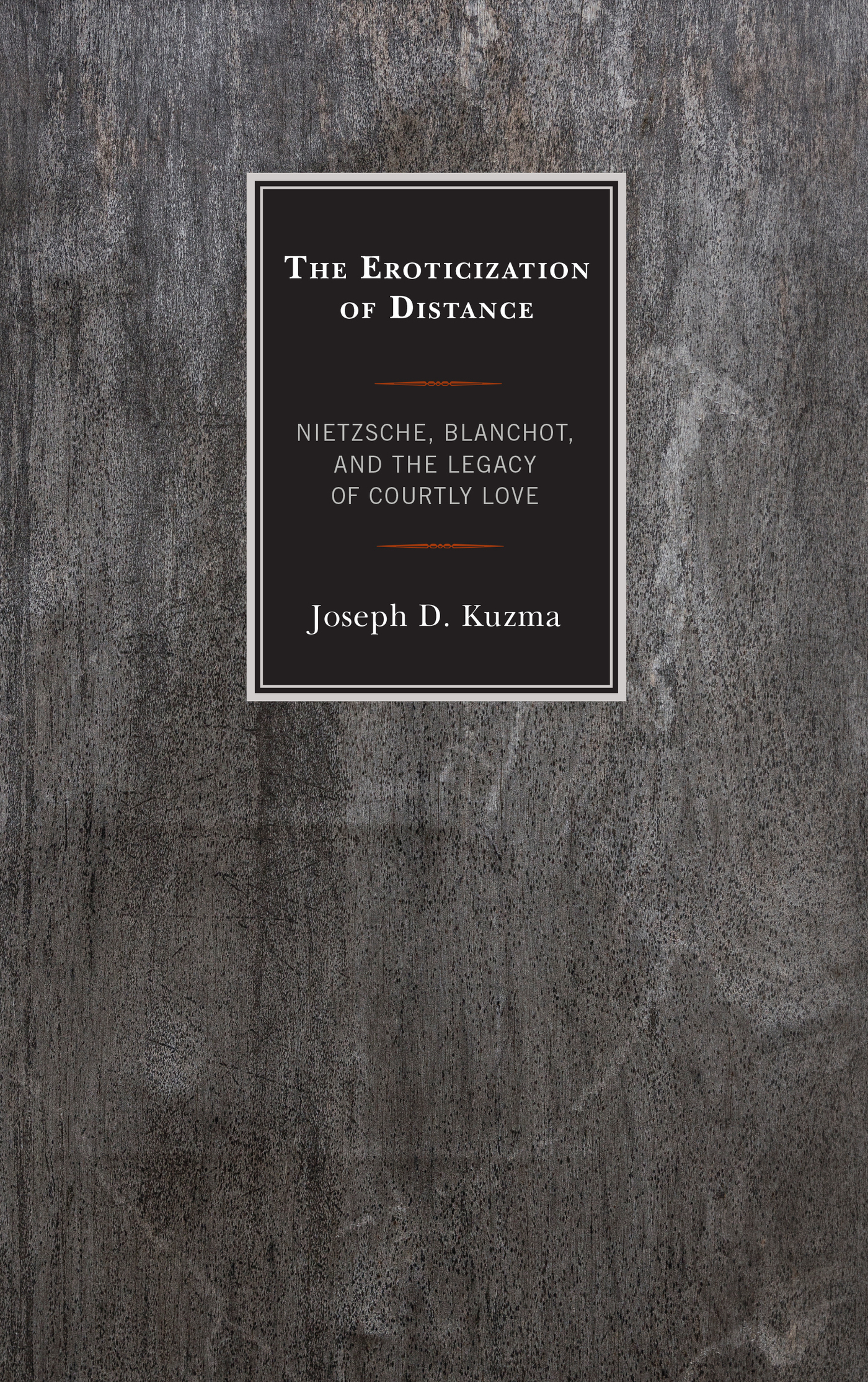
Some four hundred meters above the unbroken azure of the Mediterranean coast, the narrowest of paths leads one upwards, around spires of eroded rock and boulder, to the walls of a medieval village perched atop the summit. The path itself is not only steep but treacherouscarved out over many hundreds of years, it once led mules laden with cargo, rather precariously, from the port below to the gates of a chateau whose ruins still overlook the sea with a bruised, yet defiant, stateliness. A fort in Roman times, the town fell to the advancing Moors in the year 900, and the evidence of Moorish influence upon the towns architecture and design remains, to this day, clearly discernible. The villages streets are narrow winding pathways adorned uniformly with flowering vines and greenery; its buildings are ornamented with red brick and terracotta roof tiles. Automobiles and electric signs are nowhere to be found here. The village exists as if in a state of timelessness, disengaged from the prevailing flow of history.
It was here, to a modest house on the Rue de Bournou, in the village of ze, that the writer Maurice Blanchot withdrew in November 1946. In a small room overlooking the Cape Ferrat and the vast, shipping channels of the Mediterranean, he would write, over the next decade, some of his most important critical essays and literary texts. The choice of locale was significant. Some sixty years prior, a thinker well-known to Blanchot had similarly sought convalescence along this stretch of French coastline. Many spots and heights in the countryside around Nice have been sanctified for me through unforgettable moments [unvergessliche Augenblicke], Nietzsche tells us in Ecce Homo, that decisive section [of Thus Spoke Zarathustra] which bears the title On the Old and New Tables was composed during the arduous ascent from the station to the marvelous Moorish rocky haunt of ze.
More striking than the geographical confluence, however, is a thematic one. It was amidst the silent companionship of these rocks and boulders that Nietzsche came to develop, in the winter of 1883-1884, Part III of Zarathustra, that section of the text dealing most centrally with questions of time and eternity, love and longing. It is this portion of the text that features Zarathustras various abortive efforts at articulating the thought of eternal recurrence, and concludes with Zarathustras courtship of eternity and his joyful affirmation of erotic forbearance. Though at least one preeminent scholar, in recent years, has argued that Blanchots most substantive engagements with Nietzsches thought do not emerge until the writer's return to Paris in the late 1950s, I want to suggest that, on issues pertaining to relationality, love, and desire, the influence of Nietzsches thought can be seen to assert itself much earlier within Blanchots texts. In this book, I am interested in documenting the specific conception of eroticized distance that emerges in Nietzsches mature philosophy, and is later reinscribed and radicalized in Blanchots writings of the 1940s and early 1950s.
Few experiences are more universal to the human condition than the obdurate pulsing of erotic desire. Within the Western tradition, there have been, in essence, two differing ways of thinking about this experience. In accordance with one way, desire is construed teleologically. It is directed toward some outcome to be achieved, some goal to be met, some threshold to be reached. In desiring, we envision an object that we believe ourselves to lack, and we strive to acquire it, know it, or become one with it. Distance invariably comes to be denigrated within this way of thinking, perhaps even cursed, on account of its role in delaying the moment of eventual satisfaction. Distance is what keeps up apart from what we seek. We desire, at very moment, to close the gap, to suppress distance, in order to draw nearer to the object in question. It matters little whether the object is divine or carnal, real or imagined. In each case, this way of thinking makes the distance that separates us from the desirable object the enemy of fulfillment.
There is, however, another way of thinking about desire. Whereas traditional accounts of eroticism, throughout philosophy and the arts, have tended to emphasize proximity, consummation, fusion, or release as the goals toward which erotic longing ultimately strives, I argue that Nietzsche seeks to rehabilitate the very notion of erotic distance itself by liberating it from all subordination to teleological ideals. Nietzsche sees erotic separation not as a circumstance to be gradually overcome in the name of some form of ultimate fulfillment; but rather, as something higher than any reconciliation and thus worthy of valorization in its own right.
What motivates Nietzsche to rethink eroticism in this manner? In this book, I argue that a primary impetus can be located in Nietzsches fascination with the practices and protocols of twelfth century courtly love. It was within this sociocultural context that erotic distance came to assume, for the first time in Occidental culture, an incomparably elevated status. That Nietzsche admired the Provenal troubadours, those practitioners of courtly love, and even considered them his true kindred spirits,
The roots of Nietzsches interest in the Provenal courtly poets may be traced back to their explicit rejection of previous social mores. Perhaps most consequential, though, is the manner in which the courtly practice of the coitus reservatus came to prefigure Nietzsches own thought of eternal return, offering him a precedent for desires infinite intensification in the absence of any consummatory aim.
In the view of Denis de Rougemont, there is no single love narrative that accords all of this a more paradigmatic sweep than the romance of Tristan and Iseult. Perhaps unsurprising, then, is Nietzsches well-documented, lifelong obsession with Wagners operatic staging of the storyan obsession that far outlasts Nietzsches devotion to Wagner himself. What Nietzsche encounters in
Next pageFont size:
Interval:
Bookmark:
Similar books «The eroticization of distance: Nietzsche, Blanchot, and the legacy of courtly love»
Look at similar books to The eroticization of distance: Nietzsche, Blanchot, and the legacy of courtly love. We have selected literature similar in name and meaning in the hope of providing readers with more options to find new, interesting, not yet read works.
Discussion, reviews of the book The eroticization of distance: Nietzsche, Blanchot, and the legacy of courtly love and just readers' own opinions. Leave your comments, write what you think about the work, its meaning or the main characters. Specify what exactly you liked and what you didn't like, and why you think so.

